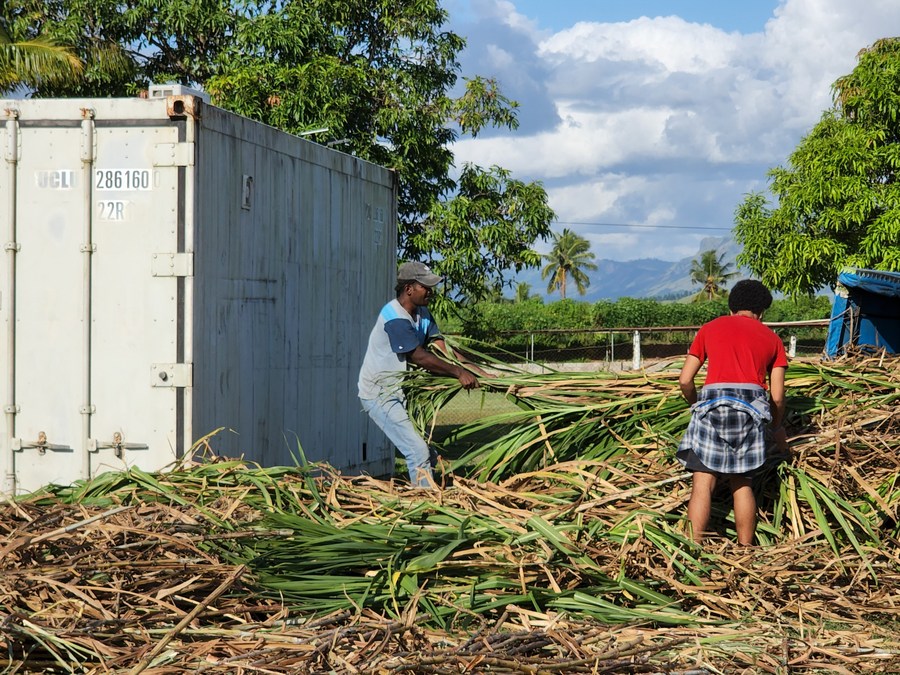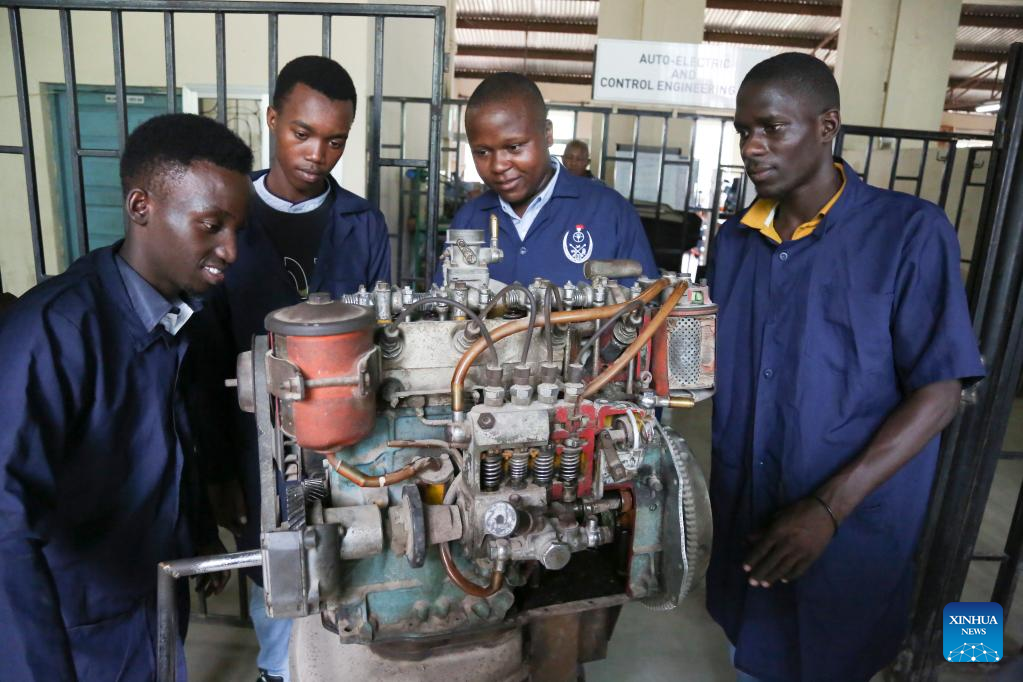United Nations (UN) Secretary-General Antonio Guterres called for "a global rescue plan" for the Sustainable Development Goals (SDGs) on Monday.
The SDGs were adopted by the UN in 2015 as a universal call to action to end poverty, protect the planet, and ensure that by 2030 all people enjoy peace and prosperity.
At the midpoint, only 15 percent of the targets are on track, and many are going in reverse, Guterres said, calling for action to reduce hunger, quicker transition to renewable energy, wider spread of the benefits and opportunities of digitalization and climate action.
Chinese Vice President Han Zheng said on Tuesday that the China-proposed Global Development Initiative (GDI) shares the same vision with the goals advocated by the UN. "On the road to development, no country shall be left behind, and no one shall be left behind," he noted.
He made the remarks during the high-level meeting on GDI Cooperation Outcomes at the UN headquarters. Attendees of the meeting said the GDI has played a positive and important role in building consensus on development, deepening international cooperation and implementing the UN 2030 Agenda.
Combating poverty
To facilitate the common development and progress of all countries, Chinese President Xi Jinping proposed the GDI at the General Debate of the 76th Session of the UN General Assembly two years ago.
According to the Progress Report on the Global Development Initiative, released in June by the Center for International Knowledge on Development of China, half of the 32 concrete actions proposed have been accomplished or have yielded initial results.
Combating poverty is both a major goal of the SDGs and the GDI's priority area. To this end, China has been promoting knowledge sharing and exchanges to enhance the capacity of developing countries for poverty reduction and development.

Employees of Bula Mushroom company unload Juncao from a vehicle in Nadi, Fiji, May 11, 2022. /Xinhua
Employees of Bula Mushroom company unload Juncao from a vehicle in Nadi, Fiji, May 11, 2022. /Xinhua
China's technical assistance projects on Juncao, which means breeding fungi with herbaceous plants, and upland rice in Papua New Guinea's Eastern Highlands Province have increased the incomes of local farmers and improved the sustainable development capacity of local agriculture.
Juncao and upland rice, together with coffee, are now among the three agricultural pillars of the province. Amson Sibanda from the UN Department of Economic and Social Affairs said that Juncao technology is an effective tool and a simple technology that can be used by everyone, even somebody with limited knowledge or education.
Named after an ancient Chinese craftsman, China has helped set up the Luban Workshop, which provides vocational training for youth in 20 countries, including 11 African countries, further strengthening the economic development and capacity building of developing countries.
Since the establishment of the first Luban Workshop in Djibouti in March 2019, China has set up 12 more of them in Africa.
The workshop in Africa has helped upgrade facilities and provided state-of-the-art technology and training for the host countries.

Students learn vocational skills in the Luban Workshop in Dar es Salaam, Tanzania, March 20, 2023. /Xinhua
Students learn vocational skills in the Luban Workshop in Dar es Salaam, Tanzania, March 20, 2023. /Xinhua
Climate action
As extreme weather sweeps across the world this year, the UN chief on Tuesday called for determination to tackle the most immediate threat to humanity: global warming.
As of May 2023, China has signed 46 South-South cooperation documents on climate change with 39 developing countries to help them improve their climate response capacity through cooperation in building low-carbon demonstration zones and implementing in-kind assistance programs.
China has held 52 South-South cooperation training sessions on climate change for about 2,300 officials and technicians from more than 120 developing countries.
China has also conducted technical cooperation projects on wildlife conservation and carried out a series of studies with Mongolia, helping increase the population of endangered Gobi bears from 23 to more than 50.
In addition, China has provided scientific data support for quantitative monitoring and evaluation of the implementation of the 2030 Agenda in different countries and regions. The China-led open science program Sustainable Development Science Satellite 1 (SDGSAT-1) has shared more than 90,000 images and data with the rest of the world.
In February 2023, the UN Satellite Centre released a report to assess the earthquakes in Türkiye and Syria using SDGSAT-1 and other data, which helped local governments and international organizations with relief policies and post-disaster reconstruction.
Stephen Bainous Kargbo, the UN Industrial Development Organization representative to China, said the GDI calls for international commitment to adhere to development-first, innovation-driven and people-centered approaches and result-oriented actions, holding great promise to address global challenges and the development needs of developing countries.